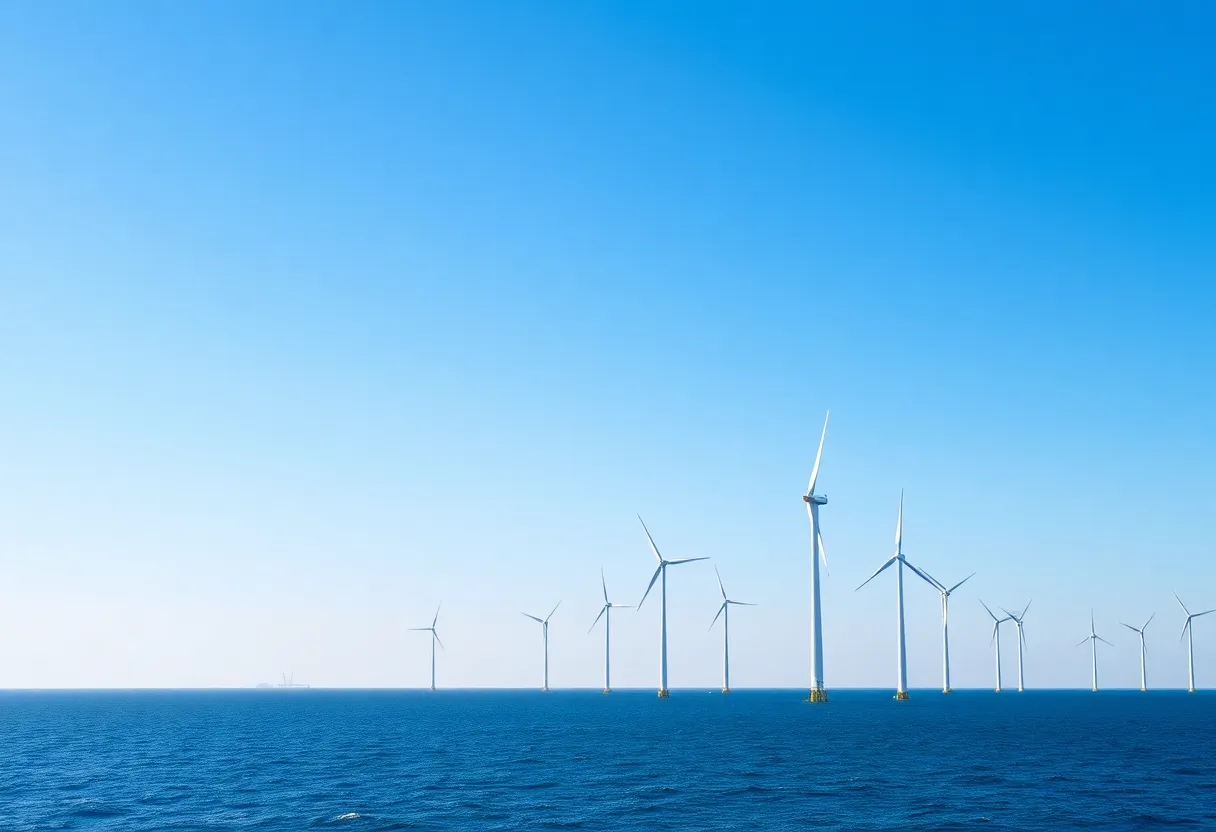News Summary
The Trump administration’s decision to cancel $670 million in funding for offshore wind projects poses a major threat to the jobs of approximately 5,000 workers along the East Coast. Governors from Massachusetts, New York, Connecticut, Rhode Island, and New Jersey have expressed concerns over potential job losses and the negative impact on renewable energy efforts. Key projects, including the Revolution Wind project in Rhode Island, are now at risk, raising alarms about the future of the wind energy sector and climate initiatives in the region.
Rhode Island – The Trump administration’s recent decision to cancel $670 million in funding for offshore wind projects threatens the futures of approximately 5,000 workers across the East Coast engaged in building the burgeoning offshore wind industry. This move comes as several governors from states including Massachusetts, New York, Connecticut, Rhode Island, and New Jersey have expressed their deep concern over the potential job losses and the negative impact these cancellations may have on renewable energy initiatives.
On a recent Friday, the administration announced the cancellation of key funding, drawing immediate criticism from the involved states. The governors emphasized their commitment to supporting labor and the unions representing local workers, underscoring the jobs at stake for those involved in offshore wind projects. They assert that maintaining existing permits is essential to protect livelihoods and promote economic growth through clean energy initiatives.
Since assuming office, the Trump administration has implemented a series of measures perceived to be anti-renewable energy, including an executive order on the first day that halted federal approvals for all offshore wind leases and permits. This initial action created uncertainty among investors and halted ongoing projects across the country. In April, this approach led to a stop-work order for the Empire Wind 1 project, which aimed to supply New York City with renewable wind energy. Although the stop-work order was subsequently lifted, it highlighted the administration’s conflicting stances on energy development.
In addition to the Empire Wind project, the Revolution Wind project in Rhode Island, which is 80% complete and has the potential to power 350,000 homes, received a stop-work order on August 22. The $4 billion project is seen as critical to Rhode Island’s climate strategy, aimed at combating global warming. Without its completion, the state’s ambitious climate goals face significant setbacks.
Ever since the issuance of these stop-work orders, unions have expressed their frustration, pointing to the adverse effects on trained workers who have invested their skills and time into these projects. The canceled projects also included roughly $34 million earmarked for the Salem Wind Port Project, further exacerbating concerns regarding job security in the wind energy sector.
U.S. Transportation Secretary Sean P. Duffy stated that the cancelled offshore wind projects did not align with the administration’s broader policy goals. Instead of supporting renewable energy, the government plans to redirect funds toward port upgrades and revitalizing the maritime industry. However, the governors argue that this redirection reinforces a negative perception among investors, potentially increasing the costs of financing future projects and stalling the growth of a critical sector.
In their response, the governors stressed the importance of maintaining a diverse energy portfolio that includes not just renewable sources, but also nuclear and natural gas, to ensure economic security in the transition to cleaner energy sources. They believe that a balanced approach is vital to not only safeguard jobs but also to advance initiatives aimed at reducing carbon emissions.
The Revolution Wind project was set to begin operations in 2024, making its cancellation even more troubling considering Rhode Island’s legislative efforts to tackle climate challenges. Scientists emphasize the urgent need to adopt renewable energy solutions to combat climate change effectively, making the timing of the Trump administration’s decision all the more consequential.
The situation creates an increasingly precarious environment for the wind energy sector, which has been on an upward trajectory for job creation and investment. Without a supportive policy framework, the future of offshore wind development—and the jobs it creates—remains uncertain.
Deeper Dive: News & Info About This Topic
- Boston Globe
- Wikipedia: Offshore wind power
- Martha’s Vineyard Times
- Google Search: offshore wind projects
- The Guardian
- Encyclopedia Britannica: Wind energy
- Ainvest
- Google News: offshore wind funding cancellation

Author: STAFF HERE PROVIDENCE WRITER
The PROVIDENCE STAFF WRITER represents the experienced team at HEREProvidence.com, your go-to source for actionable local news and information in Providence, Providence County, and beyond. Specializing in "news you can use," we cover essential topics like product reviews for personal and business needs, local business directories, politics, real estate trends, neighborhood insights, and state news affecting the area—with deep expertise drawn from years of dedicated reporting and strong community input, including local press releases and business updates. We deliver top reporting on high-value events such as WaterFire, Rhode Island International Film Festival, and Rhode Island Comic Con. Our coverage extends to key organizations like the Greater Providence Chamber of Commerce and Providence Warwick Convention & Visitors Bureau, plus leading businesses in finance and manufacturing that power the local economy such as Citizens Financial Group and Textron. As part of the broader HERE network, we provide comprehensive, credible insights into Rhode Island's dynamic landscape.





